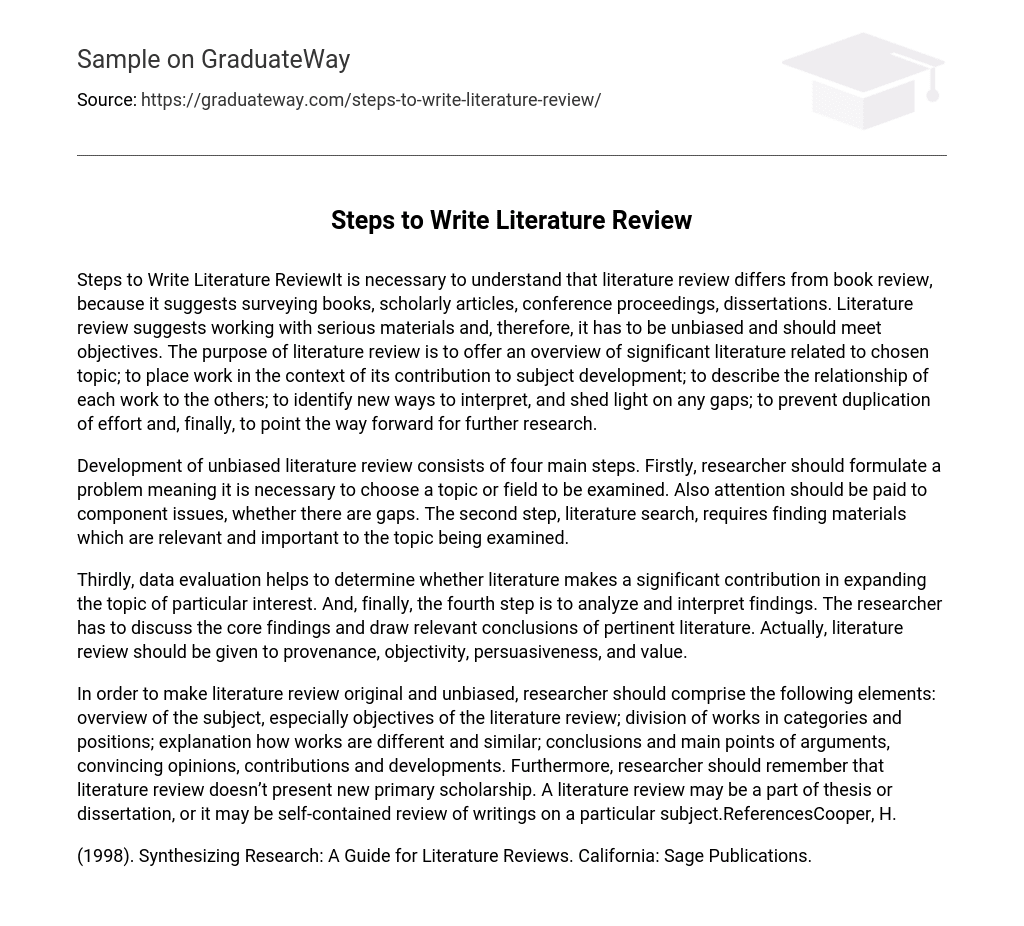It is necessary to understand that literature review differs from book review, because it suggests surveying books, scholarly articles, conference proceedings, dissertations. Literature review suggests working with serious materials and, therefore, it has to be unbiased and should meet objectives.
The purpose of literature review is to offer an overview of significant literature related to chosen topic; to place work in the context of its contribution to subject development; to describe the relationship of each work to the others; to identify new ways to interpret, and shed light on any gaps; to prevent duplication of effort and, finally, to point the way forward for further research.
Development of unbiased literature review consists of four main steps. Firstly, researcher should formulate a problem meaning it is necessary to choose a topic or field to be examined. Also attention should be paid to component issues, whether there are gaps. The second step, literature search, requires finding materials which are relevant and important to the topic being examined.
Thirdly, data evaluation helps to determine whether literature makes a significant contribution in expanding the topic of particular interest. And, finally, the fourth step is to analyze and interpret findings. The researcher has to discuss the core findings and draw relevant conclusions of pertinent literature. Actually, literature review should be given to provenance, objectivity, persuasiveness, and value.
In order to make literature review original and unbiased, researcher should comprise the following elements: overview of the subject, especially objectives of the literature review; division of works in categories and positions; explanation how works are different and similar; conclusions and main points of arguments, convincing opinions, contributions and developments. Furthermore, researcher should remember that literature review doesn’t present new primary scholarship. A literature review may be a part of thesis or dissertation, or it may be self-contained review of writings on a particular subject.
References
- Cooper, H. (1998). Synthesizing Research: A Guide for Literature Reviews. California: Sage Publications.





